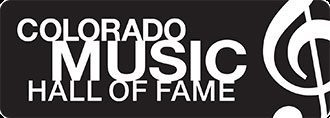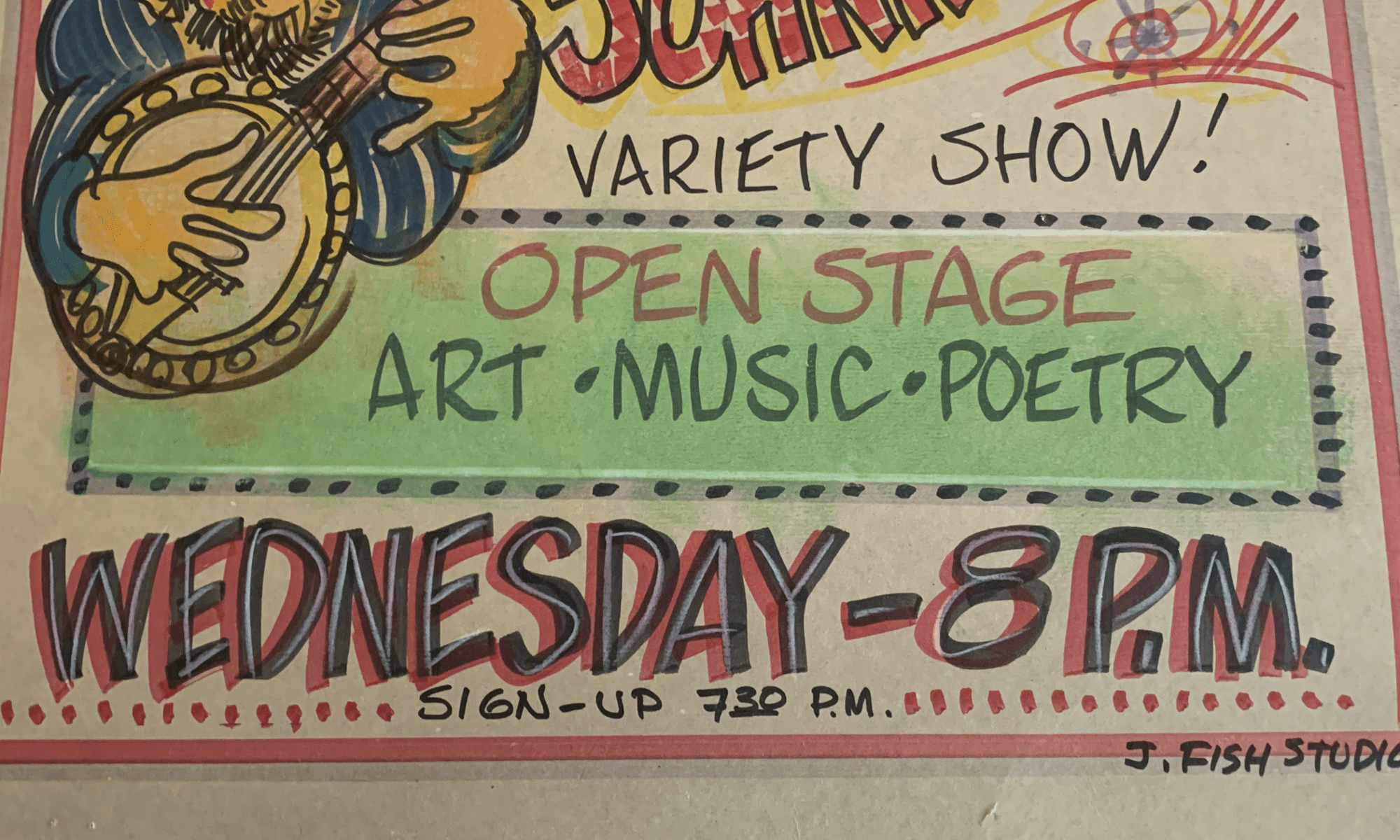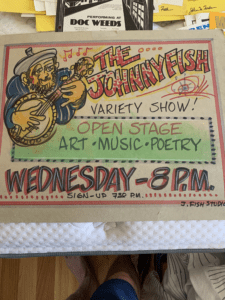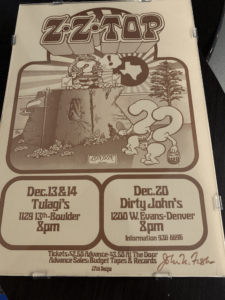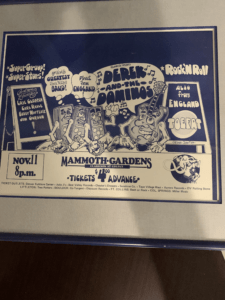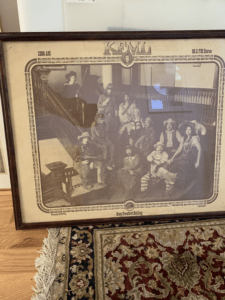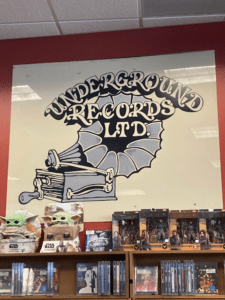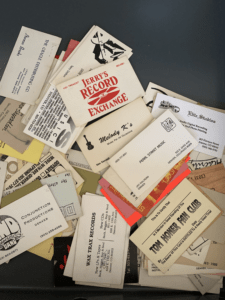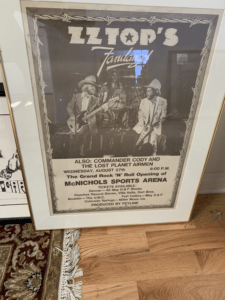Tale of The Fish Part 2
So, last time I told you about my first meeting with Denver artist John Fish and my purchasing of his posters and original artwork used in advertising concerts in Colorado (and other states) in the early to mid-‘70s. But the story didn’t end there. After I got the stuff back to Twist And Shout, it dawned on me that his style was reminiscent of the sign which adorned the original store I had purchased at a tax auction in 1988: Underground Records. Sure enough, when I got a ladder out and looked at the old sign, which was displayed on a wall inside the store, I saw John’s name at the bottom of the logo. My connection with this guy grew yet again.
A few weeks later, John came into the store with an artist’s portfolio. He told me he had come across some other interesting items while going through his “archives.” What he showed me was astonishing. It was the best, rarest stuff yet. A flyer for a very early ZZ Top show at the legendary, and tiny, Tulagi’s nightclub on The Hill in Boulder. Colorado Music Hall of Fame founder and inductee Chuck Morris ran that legendary club that saw the early success of The Eagles, Dan Fogelberg and countless others within its storied walls.
The next item completely blew my mind! A flyer for a Derek & The Dominoes show at Mammoth Gardens that never happened. The flyer is classic Fish–cartoonish and fun, but what an important, and unknown moment in music history! Eric Clapton’s short-lived supergroup featuring legendary guitar parts from Duane Allman produced the all-time great album “Layla and Other Assorted Love Songs” in 1970. The band did little touring, cut even shorter when they broke up, largely due to Clapton’s ongoing struggles with heroin. The Denver show was scheduled but never happened. I have not seen another copy of this flyer anywhere—ever!
John Fish continued to surface over the years. We became friendly, and he told me many interesting things about the music scene in Colorado during the ‘60s and ‘70s. He was there; he was part of it, and he was further proof that the counter-culture indeed existed and flourished in our fair state.
As time went on, John started declining before my eyes. He was an avid drinker and was having trouble finding his way in modern society. I continued to buy everything he brought me—no matter how slight. At one point, he brought me a CD of his self-produced music. It was him playing guitar and banjo and singing old-timey blues and folk songs. It was a fun listen, but it seemed like a last-ditch effort to fit into the artistic community as he understood it.
The final time I saw John, he came into the store at 300 East Alameda and said “Hey man, would you buy all the stuff in my wallet?” He literally sold me his collection of business cards, receipts, and whatnot—the detritus of a fading life. I bought them, and even there I found stuff of interest. Business cards from promoters, musicians, nightclubs. Once again, it was an obscure but fascinating peek back into Colorado’s music scene in the ‘70s.
I didn’t see John again. I heard from a mutual acquaintance, photographer John Schoenwalter, that Mr. Fish had died, broke and lonely, not long after my last encounter with him. I was profoundly moved by this news and have never forgotten this important Denver connection to its musical past. My experiences with John were also foundational in my understanding of the fickle and unforgiving nature of the music business. Whenever anybody promised me anything that seemed too good to be true, instead of getting stars in my eyes I would take a moment to reflect on the lessons of Mr. Fish.
